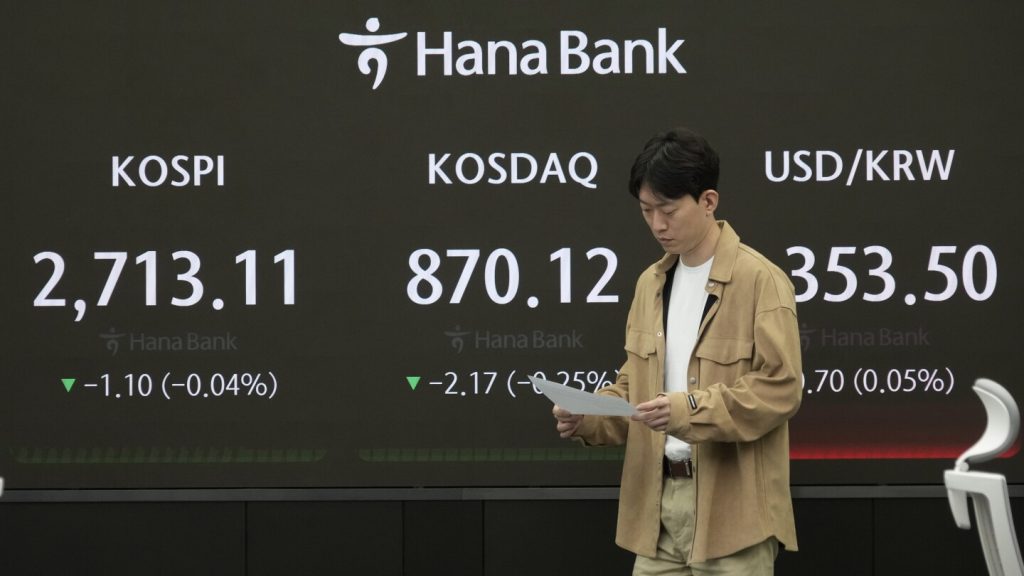Investors in Asia are looking ahead to earnings reports from top global companies and a consumer prices report that will be a gauge for U.S. inflation. Asian shares mostly rose on Monday, with Japan’s Nikkei 225 jumping 1.3% in morning trading. Sydney’s S&P/ASX 200 and South Korea’s Kospi also rose, while Hong Kong’s Hang Seng added 0.8%. The U.S. government is set to release its March report on consumer prices later in the week, which could impact market sentiments. Wall Street ended the previous week with a rally after a strong U.S. jobs report, with the S&P 500 and Dow Jones Industrial Average rising.
The U.S. government reported that employers added a surprisingly strong 303,000 workers to their payrolls in March, fueling consumer spending and business earnings. Treasury yields climbed following the jobs report, with the 10-year Treasury yield rising to 4.40%. The Fed’s benchmark interest rate remains at a historic high as a result of rate hikes aimed at controlling inflation. Concerns are rising about getting inflation below 3% and reaching the Fed’s target rate of 2%. Strong employment and consumer spending have raised these concerns, pushing the S&P 500, Dow, and Nasdaq higher.
Energy prices have been on the rise, impacting economies like Japan that heavily depend on oil imports. Economic recovery in various regions is increasing energy consumption, while supply issues and political tensions are pushing prices up. Benchmark U.S. crude fell to $85.64 a barrel, while Brent crude declined to $89.76 a barrel. In currency trading, the U.S. dollar edged up against the Japanese yen and the euro remained stable. Analysts are closely monitoring these developments to assess the impact on global markets and investor sentiments moving forward.
The lead-up to the key U.S. consumer price index this week could impact market dynamics, with investors cautious about potential reservations due to inflation concerns. Despite recent market gains, there is still a level of uncertainty surrounding future trends. Strong economic growth, fueled by impressive job numbers and consumer spending, has contributed to the rally in various stock markets. Technology companies played a key role in the recent market rally, with the S&P 500 making up most of its previous losses and moving closer to its record high set the previous week.
The Federal Reserve’s ongoing efforts to control inflation through rate hikes have caused Treasury yields to rise, creating concerns about reaching the Fed’s target rate. Signs of economic recovery in different regions have led to increased energy consumption, impacting energy prices globally. The recent decline in oil prices could provide some relief for economies heavily reliant on oil imports. Analysts are closely monitoring these developments to understand their potential impact on market stability and investor confidence in the coming days.


